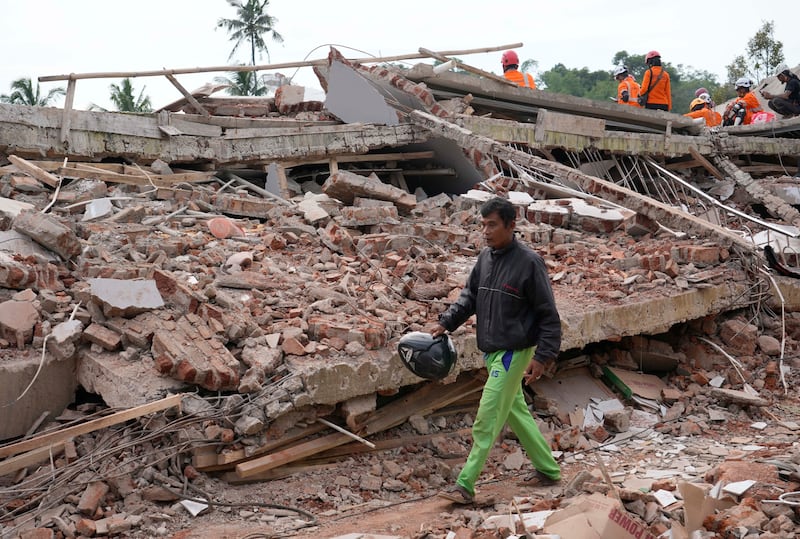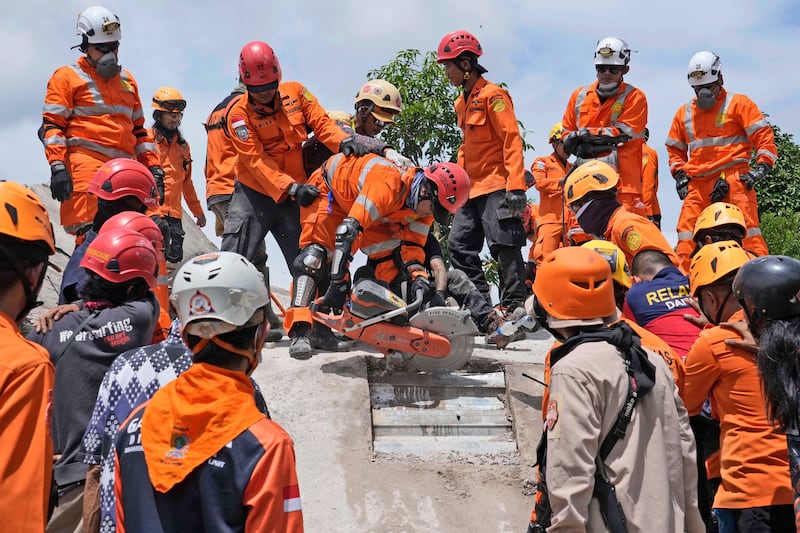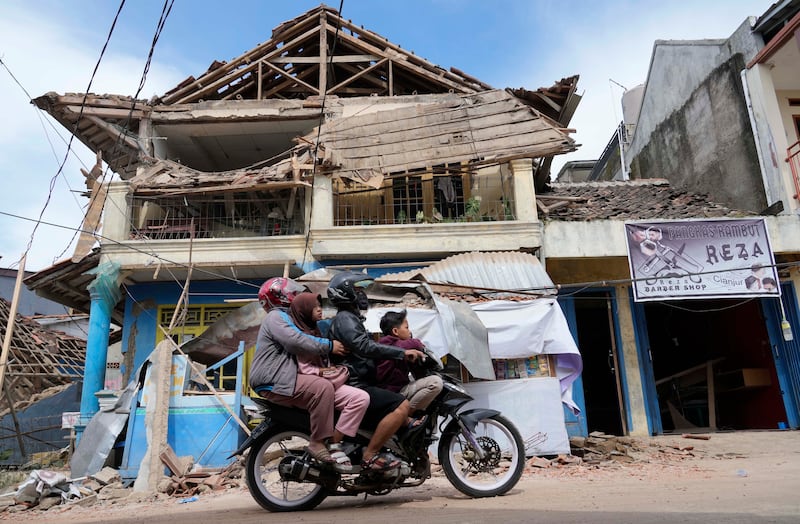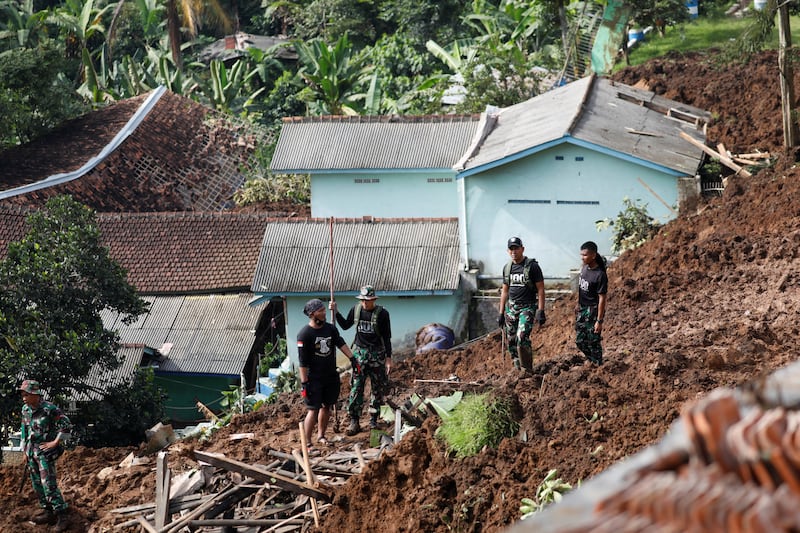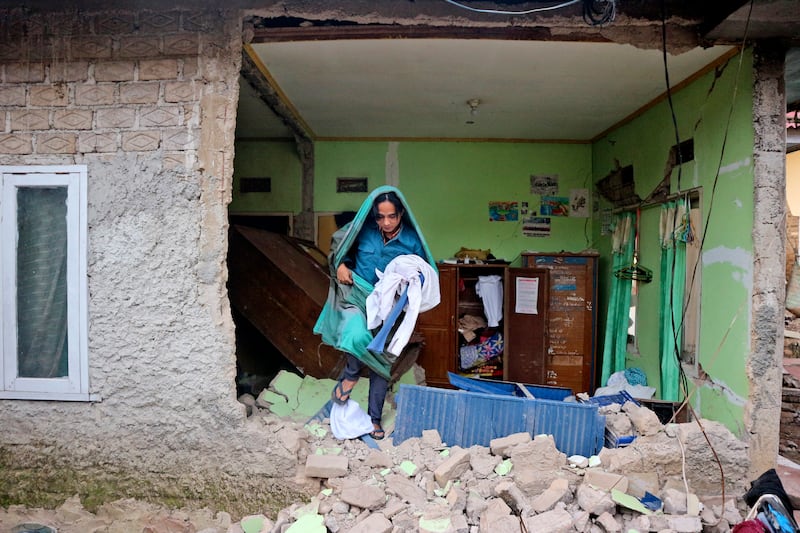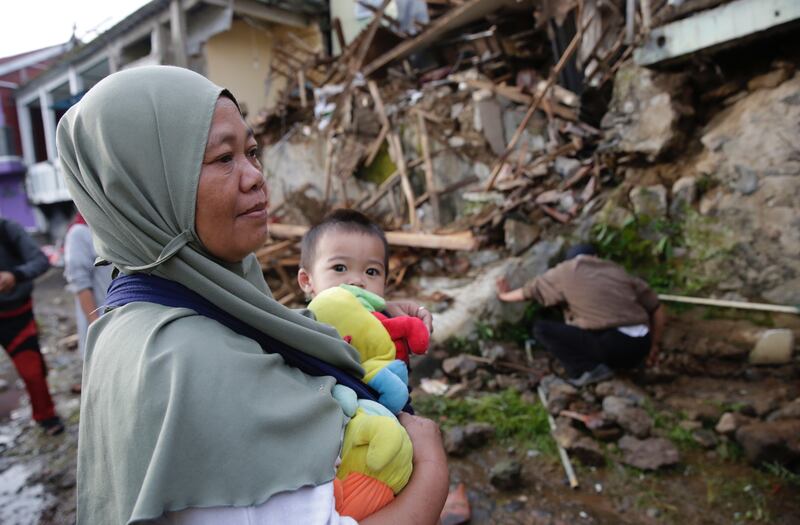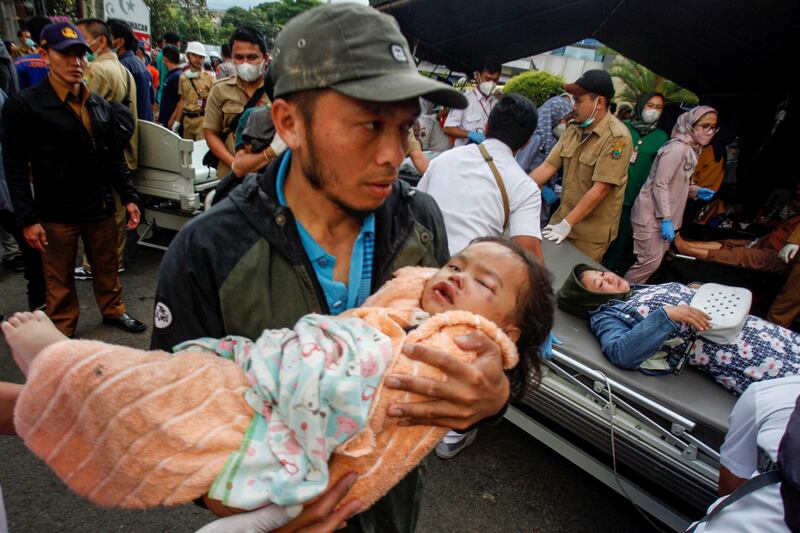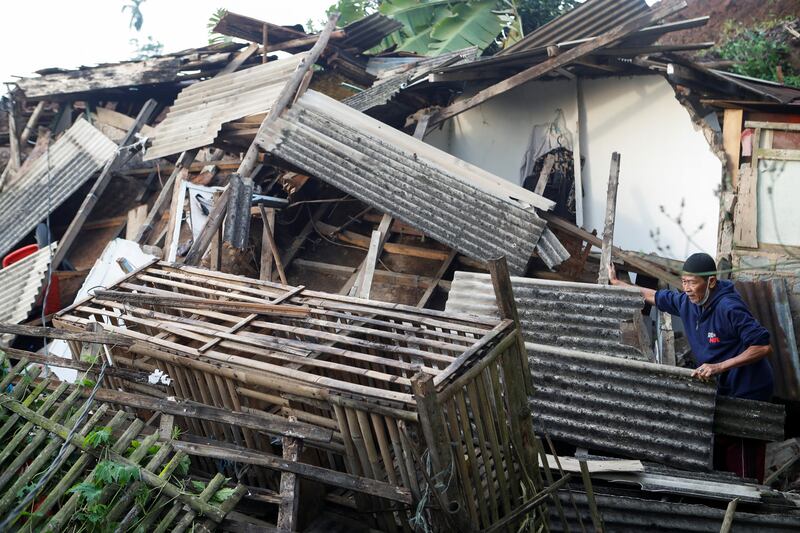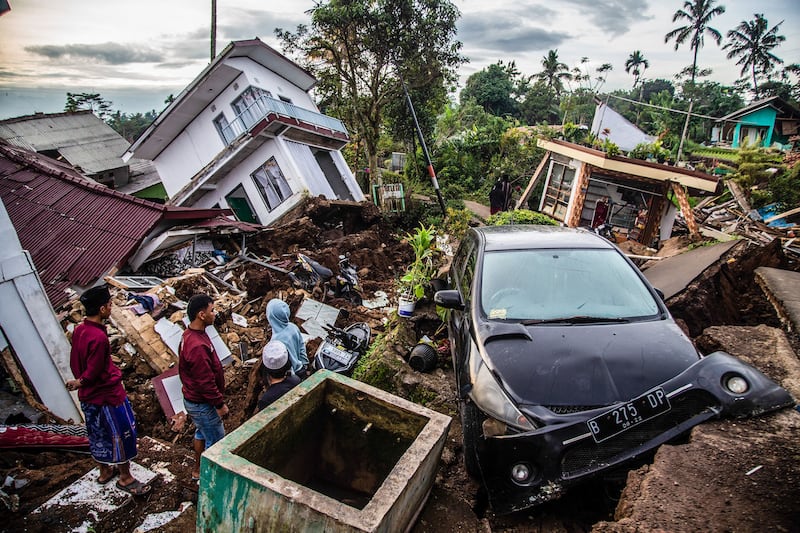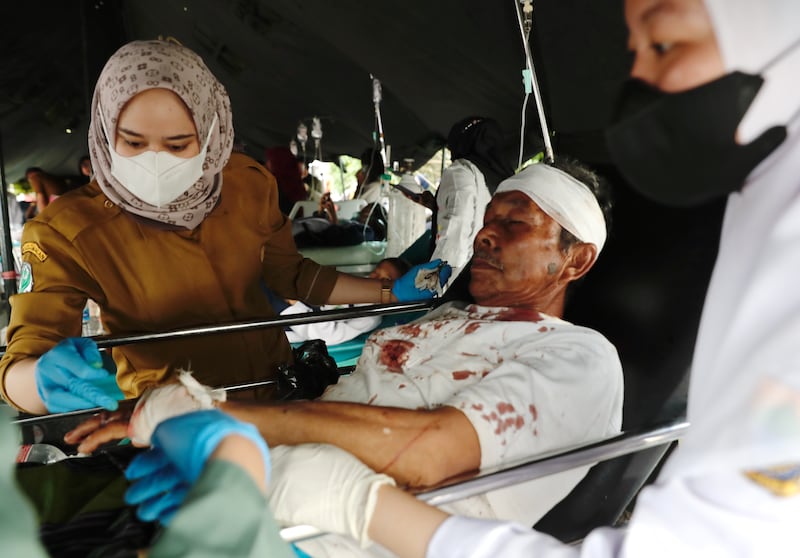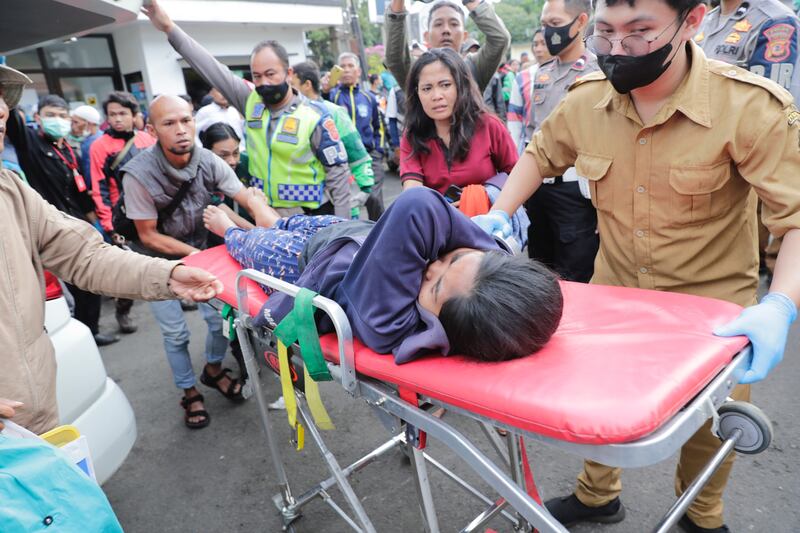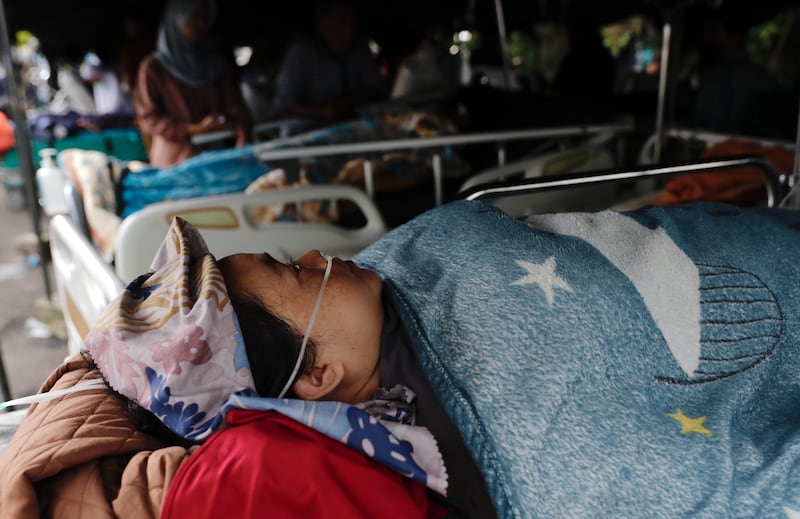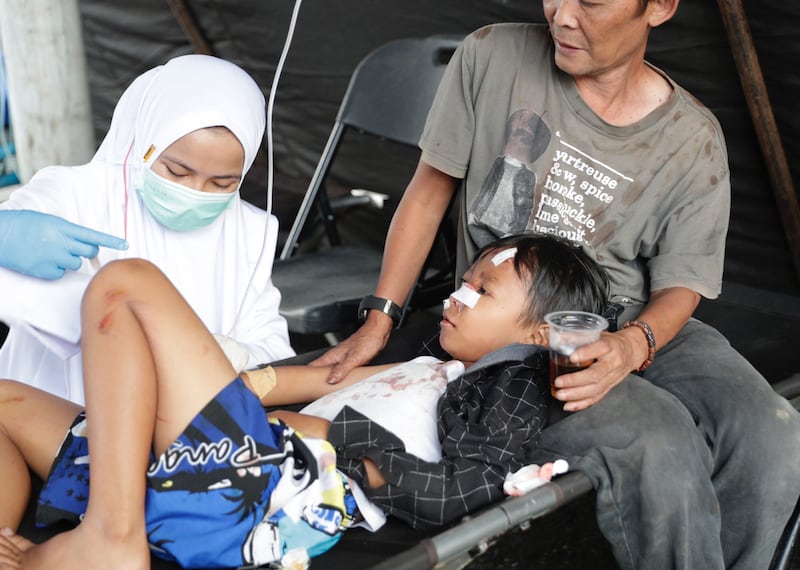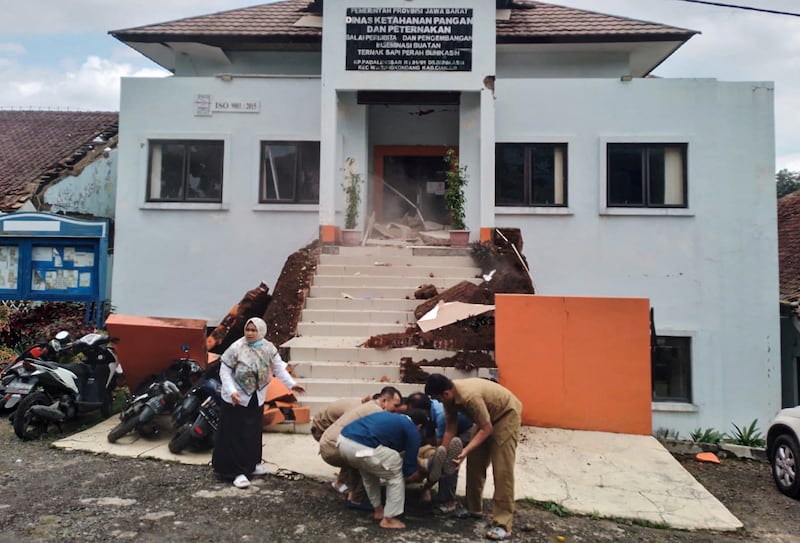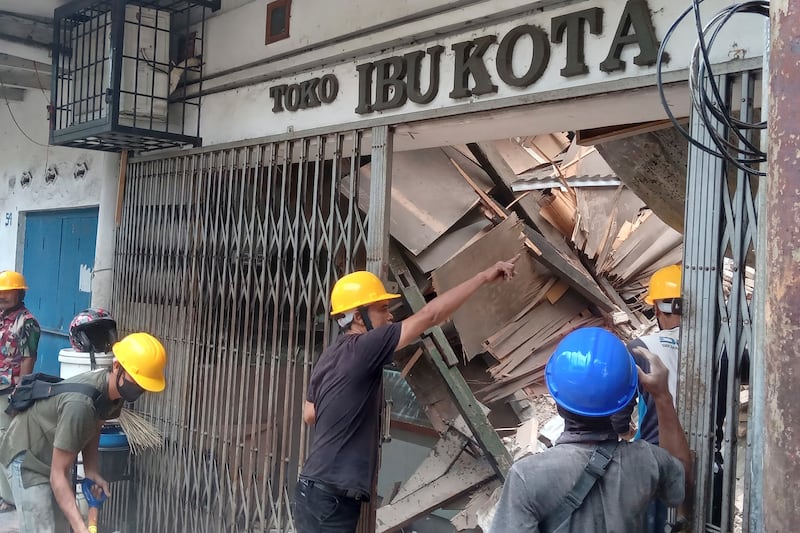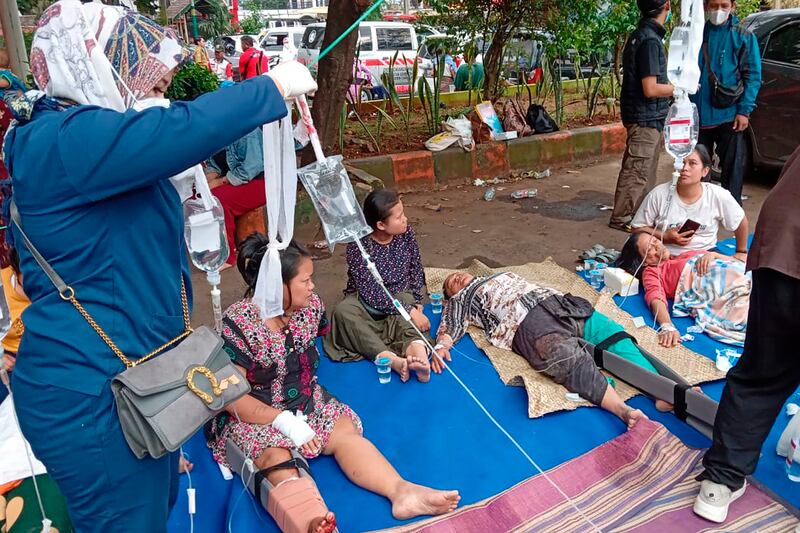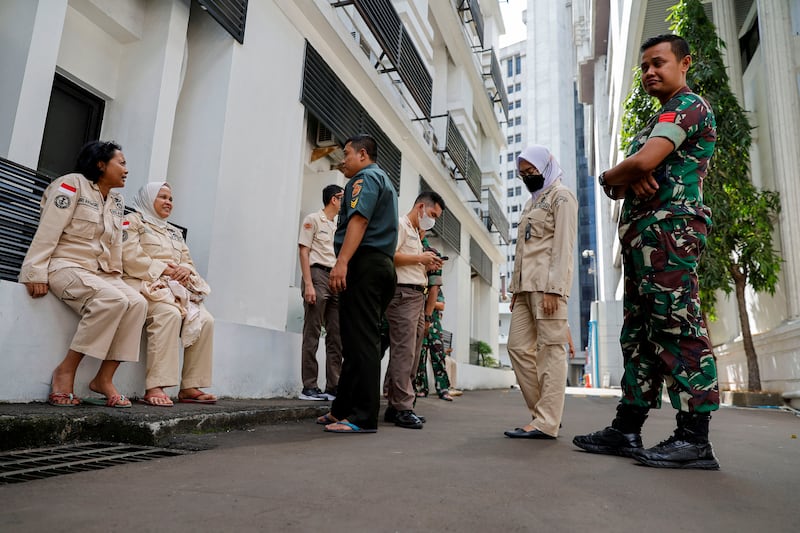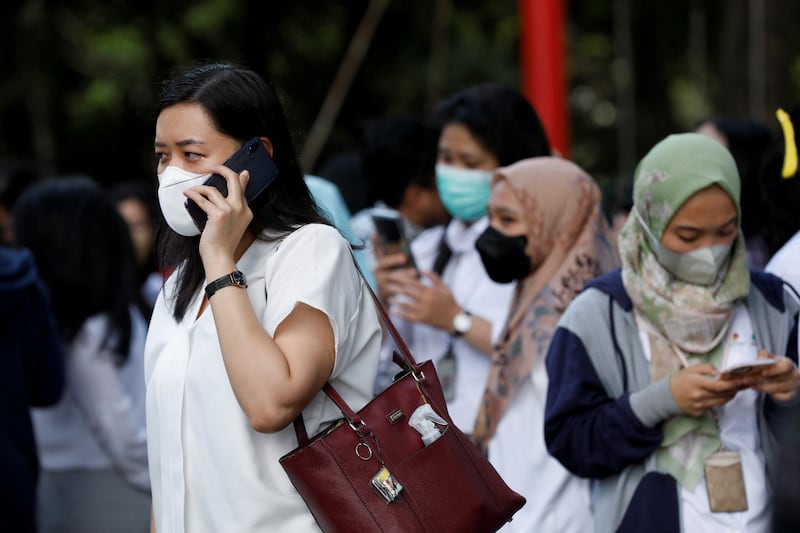Worshippers in Indonesia held Friday prayer services outdoors in the West Java district of Cianjur, terrified that another earthquake might strike, as the number of people killed by a 5.6-magnitude quake on Monday rose above 300.
People have held open-air services next to rice paddies and in volleyball courts in Cianjur, where mosques were damaged in the deadly quake, around 80km from the capital, Jakarta.
“After the disaster, we are still afraid. So, we had to move here in this volleyball court, not in a mosque. I asked the congregation to stay on guard because disaster might strike again,” a Muslim cleric told AP.
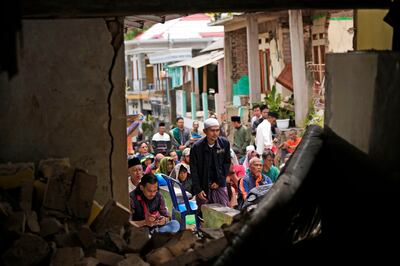
Indonesia, a Muslim-majority nation, is prone to earthquakes. About 14,000 police and emergency workers have been stationed in Cianjur, where residents in dozens of villages were affected by the earthquake and ensuing landslides.
More than 20,000 houses in the district have been damaged.
Poor infrastructure has hindered rescue efforts and aid is running low as relief workers struggle to treat the more than 1,000 injured.
A total of 310 people have been confirmed dead and 24 are still missing, the national disaster mitigation agency said in a revised death toll on Friday afternoon.
A seven-year-old girl was found dead on Friday after a long rescue effort, emergency workers said. The body of Ashika Nur Fauziah was retrieved from under three layers of concrete in Cianjur town.
Rescuers had worked late into Thursday to try to rescue the girl, who was believed to have been playing at her grandmother's house when the earthquake hit.
Hopes for her survival were raised after another child was retrieved alive from under the debris.
Azka, six, was rescued from under rubble on Wednesday after spending two days trapped without food or water.
His mother and grandmother did not survive.
Azka, who goes by one name, was found in Cianjur's devastated area of Cugenang. A pillow protected him from being crushed by a slab of concrete, a local volunteer said.


